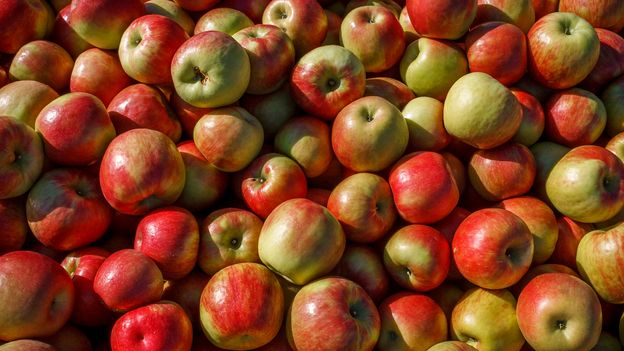
NEW YORK – The age-old adage that an apple a day keeps the doctor away has been ingrained in popular culture for generations. But does this humble fruit truly live up to its reputation?
Immediate Impact
Globally, nearly 100 million tonnes of apples are produced each year, reflecting their popularity and the belief in their health benefits. The phrase “an apple a day keeps the doctor away” traces back to an 1866 Welsh proverb, but the question remains: is there scientific truth to this saying?
Key Details Emerge
Apples are rich in phytochemicals, including flavanols, which have been linked to health benefits such as weight management and reduced heart disease risk. Additionally, apples are a significant source of dietary fiber, particularly pectin, which helps lower LDL cholesterol and stabilize blood sugar levels.
A 2017 review found that apple consumption is associated with an 18% reduction in type 2 diabetes risk.
Why Apples Are So Healthy
Research suggests that the bioactive compounds in apples, such as polyphenols, contribute to their health benefits. Some studies even associate apple consumption with a lower risk of certain cancers. However, are apples more beneficial than other fruits?
“Apples don’t have much vitamin C, and they have no iron or calcium, but they have so many other ingredients that promote health,” says Janet Colson, a professor of nutrition at Middle Tennessee State University.
Industry Response
Experts like Flavia Guzzo, associate professor of plant biology at the University of Verona, highlight that apples contain polyphenol phloridzin, less common in other fruits. This compound, along with phenolic compounds, is associated with reduced risks of heart disease and diabetes.
Some researchers claim apples have the “second highest level of antioxidant power among all fruits.”
By the Numbers
While apples offer numerous health benefits, a 2015 study found no significant statistical association between daily apple consumption and reduced doctor visits. However, apple-eaters were less likely to rely on prescription medication, suggesting some merit to the revised saying: “An apple a day keeps the pharmacist away.”
Expert Analysis
Matthew Davis, lead researcher and adjunct associate professor at Dartmouth Geisel School of Medicine, notes, “The main finding is that there isn’t much of an association between apple consumption and doctor visits, but apple-eaters are generally healthier.”
Colson emphasizes that the phrase alludes to a diet rich in plant-based foods, with apples being a convenient and accessible choice. “They’re affordable and have a long shelf-life,” she adds.
Background Context
Apples have been part of human diets for centuries, valued for their nutritional benefits and availability. Studies indicate that consuming multiple apples daily can lead to significant health improvements, such as weight loss and lower cholesterol levels.
One study found that eating three apples daily resulted in significant weight loss among participants.
What Comes Next
While eating an apple a day may not eliminate doctor visits, it contributes to overall health when part of a balanced diet. Guzzo advises consuming apples with the peel to maximize polyphenol intake and suggests ancient apple varieties may offer more health benefits than newer ones.
Ultimately, the phrase serves as a reminder of the importance of a diet rich in fruits and vegetables for maintaining good health. “Eating an apple a day is great,” says Guzzo, “but only if it’s part of a varied diet.”





